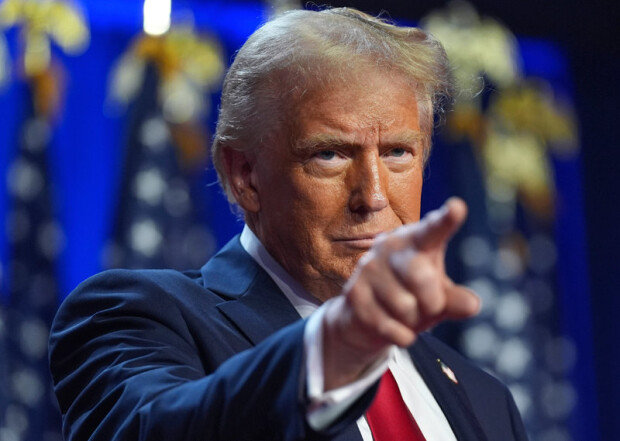Trump’s proposed tariffs on Mexico, Canada, and China spark global trade concerns
Trump’s proposed tariffs on Mexico, Canada, and China spark global trade concerns
Posted November. 27, 2024 07:50,
Updated November. 27, 2024 07:50

Former U.S. President Donald Trump has unveiled plans to impose a 25% tariff on all imports from Mexico and Canada, as well as an additional 10% tariff on goods from China, if he returns to office. Mexico and Canada had entered into the USMCA free trade agreement during Trump’s previous administration. These announcements are sparking growing concerns that other trading partners could also face similar tariff increases.
Trump cited illegal immigration and drug trafficking, particularly the fentanyl crisis, as his justification for the tariffs. He claimed that raw materials for fentanyl production are imported from China and pledged to impose an additional 10% tariff on Chinese goods until fentanyl imports into the U.S. are entirely halted.
Even before the inauguration, Trump’s rhetoric is alarming governments and businesses worldwide. Mexico, Canada, and China are only the first targets, with other countries running trade surpluses with the U.S. potentially next in line. South Korea, which is the United States’ eighth-largest trade deficit partner, could face similar tariff hikes despite the Korea-U.S. Free Trade Agreement (KORUS FTA), which might not offer enough protection against such aggressive trade measures.
South Korea stands to suffer significant economic repercussions if Trump’s proposals materialize. Many South Korean automakers and electronics manufacturers have invested heavily in Mexico, leveraging its favorable tariff structure and low labor costs to export to the U.S. South Korea ranks as the second-largest Asian investor in Mexico, following Japan, with investments exceeding 1 trillion won last year alone. If goods produced in Mexico are hit with a 25% tariff, the increased costs could erode competitiveness and reduce trade revenues.
Governments and businesses worldwide are moving quickly to address the potential fallout. Reports suggest Canada has approached the incoming administration about the possibility of a bilateral trade agreement excluding Mexico, where Chinese investments are significant, ahead of USMCA renegotiations set for next year. Meanwhile, in an effort to counter Trump’s claim that “Taiwan stole semiconductors,” TSMC, Taiwan’s leading chipmaker, plans to hold its first-ever board of directors meeting in the U.S. in February. For South Korea, the stakes are high. The government and businesses must engage in comprehensive diplomacy to convince Trump that strong economic ties with South Korea are mutually beneficial.
워싱턴=문병기 weappon@donga.com
Headline News
- Trump’s proposed tariffs on Mexico, Canada, and China spark global trade concerns
- Samsung C&T and partners secure 5.2 trillion won Qatar plant order
- Seoul launches early-morning autonomous bus service
- Kiwoom Heroes signs with outfielder Yasiel Puig
- Lee acquitted of subornation of perjury charges in first trial







